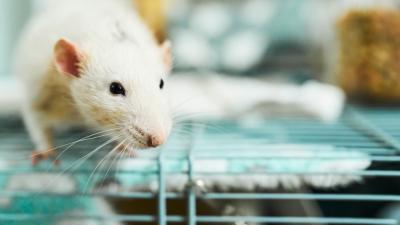Baylor Violating Federal Law by Using Live Animals
Doctors File Complaint to Halt Animal Use in Paramedic Training Program
HOUSTON—Baylor College of Medicine in Houston is operating in violation of federal law by using live animals to teach paramedics from the Montgomery County Hospital District, according to a complaint that will be filed by the Physicians Committee for Responsible Medicine—a national nonprofit of 12,000 concerned physicians—on Jan. 12, 2017.
The Animal Welfare Act’s implementing regulations “require that a principal investigator—including course instructors—consider alternatives to procedures that may cause more than momentary or slight pain or distress to any animal used for research purposes.” The Physicians Committee’s complaint will be filed with the U.S. Department of Agriculture’s Western Region Animal Care office. It cites inadequate oversight of the training protocol by the school’s animal care and use committee.
“There are widely-used, human-based methods that have already replaced animals in other paramedic programs in Texas, and which provide better training to paramedics,” says John Pippin, M.D., F.A.C.C., director of academic affairs for the Physicians Committee. “These devices allow trainees to repeat procedures and are incredibly life-like—they are made of synthetic skin and fat and can even breathe and bleed.”
Paramedic training at Baylor College of Medicine currently involves cutting into live pigs to practice procedures. Trainees are instructed to make an incision between the animal’s ribs and insert a finger into the chest cavity, cut into the throat to insert a breathing tube, as well as practice other procedures. If the animals survive these procedures, they are killed at the end of the training session.
According to a recently completed survey of all paramedic training programs in Texas, Baylor and Montgomery County Hospital District have the only paramedic program in the state still using animals. Every other program (totaling 46)—including those at Texas A&M and the University of Texas Health Science Center at San Antonio—uses only nonanimal training methods, such as human-based medical simulation, partial task trainers, and cadavers.
Baylor already has a state-of-the-art facility—the Baylor College of Medicine Simulation Center —that could replace the use of animals for the Montgomery County Hospital District training program.
Media Contact
Reina Pohl, MPH
202-527-7326
rpohl[at]pcrm.org
Founded in 1985, the Physicians Committee for Responsible Medicine is a nonprofit organization that promotes preventive medicine, conducts clinical research, and encourages higher standards for ethics and effectiveness in education and research.








